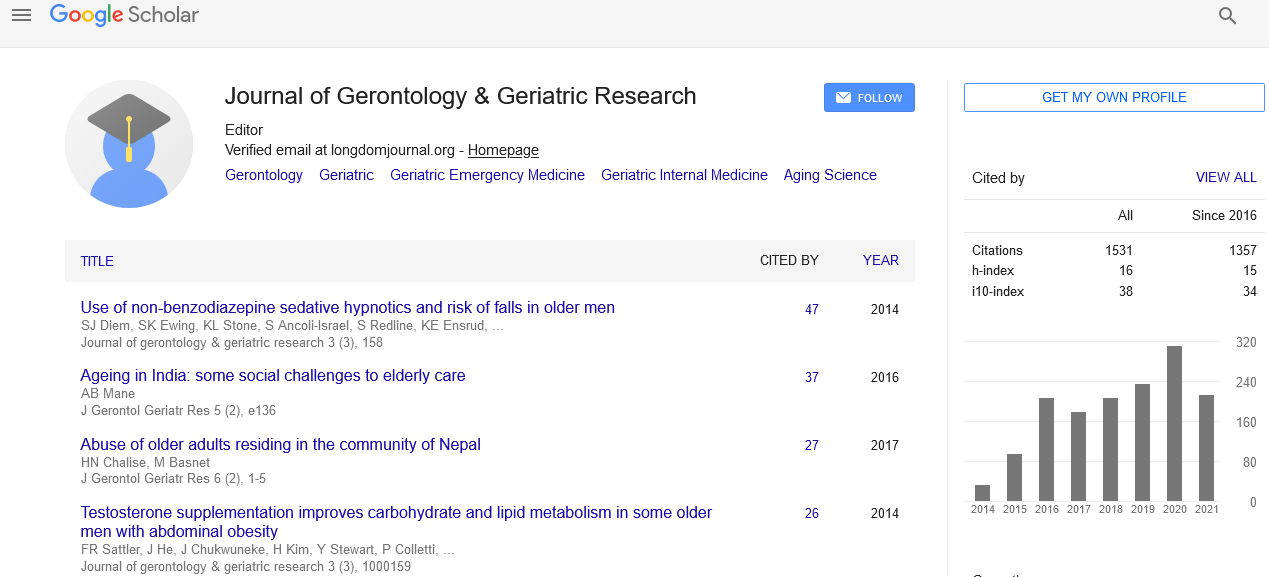PMC/PubMed Indexed Articles
Indexed In
- Open J Gate
- Genamics JournalSeek
- SafetyLit
- RefSeek
- Hamdard University
- EBSCO A-Z
- OCLC- WorldCat
- Publons
- Geneva Foundation for Medical Education and Research
- Euro Pub
- Google Scholar
Useful Links
Share This Page
Journal Flyer

Open Access Journals
- Agri and Aquaculture
- Biochemistry
- Bioinformatics & Systems Biology
- Business & Management
- Chemistry
- Clinical Sciences
- Engineering
- Food & Nutrition
- General Science
- Genetics & Molecular Biology
- Immunology & Microbiology
- Medical Sciences
- Neuroscience & Psychology
- Nursing & Health Care
- Pharmaceutical Sciences
Abstract
Variation in Stair Performance among Adults Aged 55 and Older in A 14 Month Follow-Up
Marcos Aparecido Sarria Cabrera, Renata Maciulis Dip, Sabrina Canhada Ferrari Prato, Regina KazueTanno de Souza, Cristhiane Yumi Yonamine, Mara Solange Gomes Dellaroza, Suzana Maria Menezes Guariente and Everton Costa Carvalho
Objective: To analyze variation in stair performance among adults aged 55 years and older in a 14 month followup study.
Methodology: A population-based cohort study in Cambé, a city located in the state of Paraná, Brazil. The variables analyzed were age, gender, educational level, socioeconomic profile, depression, obesity, and diabetes. Self-reported ability to go up and down stairs was assessed at baseline and end of follow up.
Results: Four hundred and four individuals were analyzed (164 men, 240 women) with median age of 65.6 years. Difficulty in going up or down stairs was 36.5% at baseline and 37.5% after a 14.3 month follow-up period. Depressive, obese and female individuals, as well as the ones with lower educational and socioeconomic status more frequently experienced difficulty in stair performance. Most negative variations in ability to go up or down stairs were identified among male, depressive, and obese individuals (-7.9%, -6.1%, and 2.8% respectively).
Conclusions: These data reinforce the role of incapacity for stair utilization in functional assessment of elderly people and highlight the need for specific actions towards more vulnerable aged groups, such as the depressive and obese elderly individuals.


